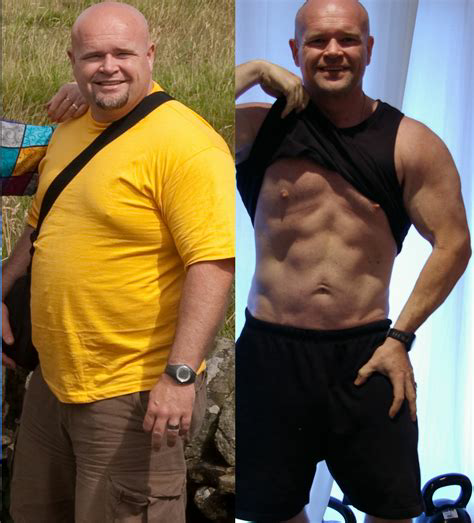Losing weight naturally and quickly should prioritize health and sustainability. Rapid weight loss can be achieved by adopting a combination of dietary, exercise, and lifestyle changes. However, it's essential to consult with a healthcare professional before embarking on any weight loss program, as individual needs and circumstances may vary.
Here are 20 ways to lose weight quickly and naturally:
1. Set Realistic Goals:
Initiate your weight loss journey by setting specific and attainable goals. These goals should consider your current weight, target weight, and a reasonable timeframe for achieving your objectives. It's important to establish goals that challenge you without being overly ambitious, as gradual and sustainable progress is often more effective than rapid changes.
2. Balanced Diet:
The cornerstone of successful natural weight loss is maintaining a balanced diet. This entails incorporating a wide array of whole foods into your meals. Prioritize fruits, vegetables, lean proteins, whole grains, and healthy fats. Avoid extreme calorie-cutting diets, as they can be counterproductive and lead to nutrient deficiencies.
3. Portion Control:
Managing portion sizes is crucial to prevent overeating. Employing smaller plates, measuring your food, and practicing mindful eating can help you gauge appropriate portion sizes and maintain control over your calorie intake.
4. Meal Planning:
Thoughtful meal planning is a powerful tool for weight management. By preparing your meals and snacks in advance, you can make healthier choices and reduce the likelihood of impulsive, unhealthy eating. This also empowers you to manage your calorie consumption more effectively.
5. Regular Eating Schedule:
Maintaining a consistent eating schedule is pivotal for stabilizing blood sugar levels and curbing unwanted cravings. Endeavor to consume meals and snacks at regular intervals throughout the day, which can help prevent excessive snacking and overindulging during meals.
6. Hydration:
Staying adequately hydrated is not only essential for overall health but also aids in weight loss efforts. Drinking water throughout the day can enhance feelings of fullness and decrease the likelihood of overeating. It also supports optimal metabolism.
7. Limit Sugary and Processed Foods:
Minimize or eliminate sugary drinks, sweets, and processed foods from your diet. These items are often high in empty calories and low in essential nutrients. Reducing their consumption can significantly impact your calorie intake and promote healthier eating habits.
8. Increase Fiber Intake:
Foods rich in dietary fiber, such as whole grains, legumes, and vegetables, play a crucial role in weight loss. They provide a sense of fullness and satisfaction, reducing overall calorie consumption. Fiber also promotes digestive health and regularity.
9. Lean Protein:
Incorporate lean sources of protein like chicken, fish, tofu, and legumes into your diet. Protein aids in preserving muscle mass while fostering a sense of fullness, potentially leading to reduced calorie intake throughout the day.
10. Healthy Snacking:
Choose wholesome snacks like fresh fruits, nuts, or yogurt when you need a quick, satisfying bite. These options supply essential nutrients and energy without excessive calories, making them ideal for weight loss. Avoid sugary or high-calorie snacks that can impede progress.
11. Regular Exercise:
A comprehensive approach to natural weight loss includes regular physical activity. Blend both cardiovascular exercises (such as jogging or cycling) and strength training (like weight lifting or bodyweight exercises) into your fitness regimen. Aim for at least 150 minutes of moderate-intensity exercise per week to enhance calorie expenditure and boost overall fitness.
12. High-Intensity Interval Training (HIIT):
HIIT workouts encompass brief bursts of high-intensity exercise followed by short recovery periods. This dynamic approach can be particularly effective for burning calories, improving cardiovascular fitness, and enhancing weight loss results. Incorporate HIIT sessions to introduce variety and accelerate progress.
13. Resistance Training:
Fostering lean muscle through resistance training is a valuable strategy for natural weight loss. Muscle tissue requires more energy (calories) for maintenance than fat tissue, which can elevate your resting metabolic rate. Incorporate strength training exercises to support long-term weight loss.
14. Mindful Eating:
Embrace mindful eating practices to become more attuned to your body's hunger and fullness cues. Consuming meals slowly and savoring each bite can help prevent overeating, encourage better food choices, and deepen your appreciation for the dining experience.
15. Adequate Sleep:
Prioritize quality sleep, typically 7-9 hours per night. Restorative sleep is essential for regulating hunger hormones, managing cravings, and supporting overall health. Sleep deprivation can hinder your weight loss journey and negatively impact your well-being.
16. Stress Management:
Effective stress management is vital for successful weight loss. Elevated stress levels can trigger emotional eating and disrupt your ability to make healthy choices. Incorporate relaxation techniques such as meditation, deep breathing exercises, or yoga into your routine to reduce stress and enhance your overall sense of well-being.
17. Accountability:
Accountability is a powerful motivator during your weight loss journey. Consider tracking your food intake, exercise, and progress using a journal or a smartphone app. Additionally, joining a support group or collaborating with a registered dietitian or personal trainer can provide added accountability and personalized guidance tailored to your unique needs.
18. Intermittent Fasting:
Intermittent fasting involves cycling between periods of eating and fasting. Popular methods include the 16/8 method (16 hours of fasting, 8 hours of eating) or the 5:2 method (5 days of regular eating, 2 days of very low-calorie intake). This approach can help some individuals reduce calorie intake and promote weight loss.
19. Mindful Eating Practices:
Beyond simply eating mindfully, mindful eating practices involve paying close attention to your body's hunger and fullness cues. This approach encourages you to savor your food, enjoy the sensory experience of eating, and develop a healthier relationship with food.
20. Nutrition Education:
Invest in educating yourself about nutrition and healthy eating habits. Understanding the nutritional content of foods, how they impact your body, and how to make informed choices can empower you to make better dietary decisions and support your weight loss journey more effectively.
Incorporating these strategies into your lifestyle can help you achieve natural and sustainable weight loss. Always consult with a healthcare professional before making significant changes to your diet or exercise routine, especially if you have underlying health conditions.
Remember that losing weight too quickly can be harmful and unsustainable. Aim for gradual, steady progress, typically around 1-2 pounds per week. This approach is more likely to lead to long-term success and improved overall health.
Always consult with a healthcare professional before making significant changes to your diet or exercise routine, especially if you have underlying health conditions.

